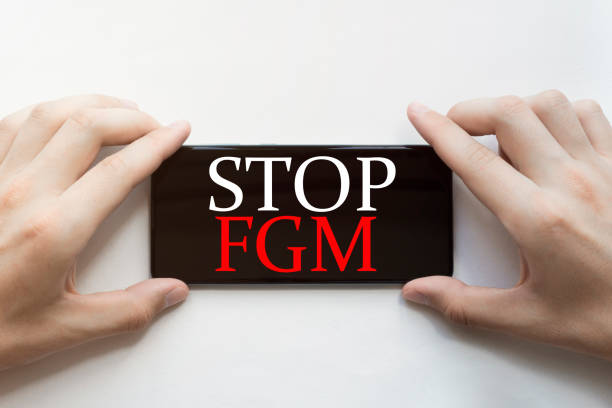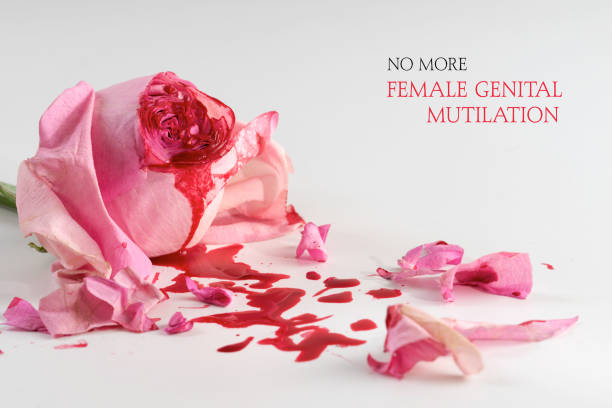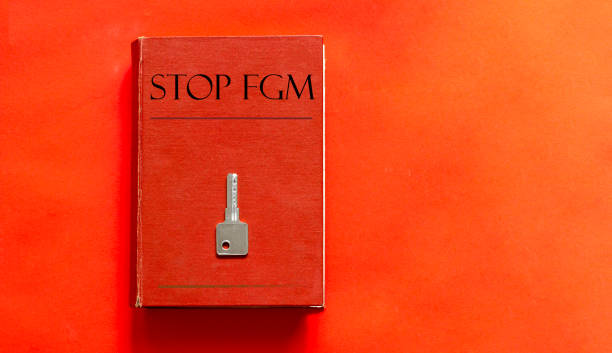Female Genital Mutilation (FGM)
The destructive traditional practice known as female genital mutilation (FGM) involves the removal of the external female genitalia entirely or in part, along with other injuries to the female genital organs performed for non-medical reasons. Each country has its justifications for female genital mutilation (FGM) even though female genital mutilation (FGM) is not beneficial to health and violates the human rights of girls and women. The World Health Organization classifies FGM into 4 types; Type I is Clitoridectomy, Type II is Excision, Type III is Infibulation and Type IV comprises other harmful procedures to the female genitalia. All four types of FGM are practised in Nigeria. About 19.9 million Nigerian women have undergone FGM, indicating a high prevalence of the practice in the country. In Nigeria, FGM is usually carried out on newborns or before the age of five. However, some survivors report having been subjected to the practice as teenagers, either before or shortly after marriage.

The erroneous belief that a woman should be made clean, the preservation of virginity and purity, societal acceptance and improving marriageability, and societal pressure are the main drivers of FGM. FGM has a wide range of effects on women, sometimes resulting in long-term complications as well as short-term ones. Among these complications are genital tissue swelling and excessive bleeding, HIV, urinary or vaginal issues, complications during pregnancy, and even fatalities.
Legal Context
To address this crisis, Nigeria’s National Assembly enacted legislation to outlaw the practice and eventually eradicate FGM from the nation. The Violence Against Persons Prohibition (VAPP) Act in section 6 expressly prohibits the practice of FGM and stipulates criminal penalties for the performance of FGM or the engagement of another to perform FGM. Though not the only legislation that prohibits FGM, other legislations prohibit harmful practices on anyone, children inclusive in context. Section 34 of the 1999 Constitution of the Federal Republic of Nigeria (CFRN), provides that “no person shall be subjected to any form of torture, inhuman or degrading treatment or punishment”, while Section 11(B) of The Child Rights Act states that “no child shall be subjected to any form of torture, inhuman or degrading treatment or punishment.
Before the enactment of the VAPP Act, which is the most recent Act prohibiting FGM, national policies have been adopted towards the elimination of this practice in Nigeria. The National Policy and Plan of Action for the Elimination of Female Genital Mutilation in Nigeria was in place from 2013 – 2017 (with an extension to the end of 2019) and was recently replaced by the National Policy & Plan of Action for the Elimination of Female Genital Mutilation in Nigeria (2021 – 2025). The National Policy & Plan of Action for the Elimination of Female Genital Mutilation in Nigeria (2021 – 2025), which shall be subject to review after five years, provides the current status of FGM in Nigeria. The policy seeks to provide a comprehensive framework based on which all efforts to eliminate FGM in Nigeria shall be undertaken in line with constitutional rights, legislative provisions and the Sustainable Development Goals. It desires to see a country where no girl or woman undergoes FGM because the practice of Female Genital Mutilation would have become obsolete in Nigeria.

The policy operates on eight core principles, which are; Human Dignity, Best Interests of the Child, Gender Equality, Empowerment, Respect for Culture within the framework of Human Rights, Inclusion, Participation, and Collaboration, Partnership & Cooperation. The policy further adopts seven strategies with laid-out objectives and outcomes under the aforementioned overall goal of eliminating the practice of FGM in Nigeria to improve the health and quality of life of girls and women. For effective implementation of this policy and the action plan, the active involvement of all tiers and agencies of governments, the communities, the private sector and civil society organisations including religious and traditional bodies, is very crucial, hence the policy stipulates an institutional framework that recognises stakeholders at the federal, state, and local government levels.
While substantial progress has been made, FGM is still being practised in some areas of the country. As a practice rooted more in culture, it derives its balance and grip from the conscious efforts demonstrated by its practitioners because culture once ingrained, is difficult to let go of, especially as most enforcers of FGM are traditional birth attendants who are majorly women as well. The patriarchal nature of our community continues to herald the belief that a woman should be controlled, kept in a dictated manner, and decisions made for her, hence creating a bedrock for FGM to continue to thrive in some places. And because culture transcends generations, the practice continues to function as a legacy to be upheld.
Implementation of the National Policy for the Elimination of Female Genital Mutilation (2021 – 2025)
The Plan of Action for the Implementation of the National Policy for the Elimination of Female Genital Mutilation (2021-2025), is an inclusive guide for the eradication of FGM in Nigeria. It encourages individuals and communities to champion social norms change and recognizes the critical role of ex-circumcisers as change agents in eliminating FGM in Nigeria. The policy caters to survivors of FGM providing them with access to timely and professional services to mitigate the impact of FGM on their lives, and seeks to strengthen the service delivery mechanisms as well. It details practical strategies such as public enlightenment & education and collaboration between stakeholders. It proposes media collaboration with other stakeholders for FGM elimination and prioritises the capacity building of women and girls for basic life skills and economic empowerment, health care providers; social workers and counsellors on the gender-based components of FGM and how to address same; law enforcement officials and judicial officers for effective enforcement of all laws that punish the crime of FGM including the VAPP Act 2015; public, private and community organisation/institutions to foster partnerships, collaborations and improved community involvement in eliminating the practice of FGM. It pays attention to the mobilisation of financial resources, the importance of tracking financial resource utilisation and identifies funding gaps for implementation of this policy.

The policy provides an evidence-based approach as it advocates for improved data collection and management to improve program planning, implementation, monitoring and evaluation of FGM interventions. A laudable effort of the policy is the recognition of women as principal change agents in pursuance of the elimination of FGM in Nigeria. Thus, it seeks to educate women on the severity of FGM to arm them with the requisite knowledge as research data indicate, for example, that limited education is a risk factor for FGM, thus the higher a mother’s level of education, the less likely her daughter is to be circumcised.
The policy if implemented, shall help Nigeria achieve the vision 2030 of eliminating all harmful practices, such as child, early and forced marriage and FGM in Nigeria.

